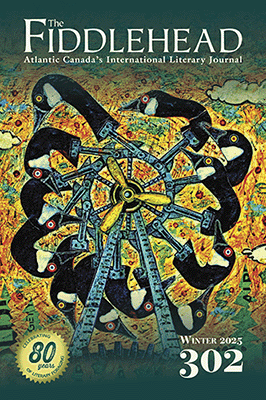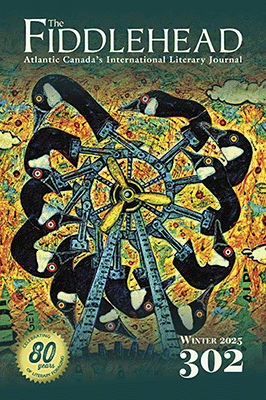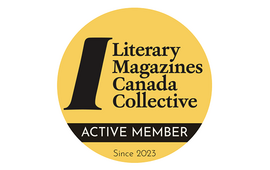
Early morning and Max had finished his first errand. He had two bars of the finest shaving soap in all of Florence in his jacket pocket. Smooth and rich, but not so soft that it disappeared in a frothy mess in your shaving cup; foam that kept its integrity with the soap. The way the foam of a good cappuccino remains a part of the coffee, he thought. Italians are good at foam. He had bought a bar of this soap early in his stay here and it had been a daily pleasure. This scent, in the morning, will come to mean Florence in his memory. Unfortunately, the apartment he was renting did not have a shaving mirror, so he had to bend awkwardly over the sink. He missed his own shaving mirror, which stretched out its expandable arm to meet him. This soap, that mirror: the perfect shaving situation.
Next on his itinerary was the bookstore at the train station, perhaps a newspaper at the kiosk. The station piazza opened brightly in front of him with a relaxed mid-morning busy-ness. A group of tourists huddled around a woman holding aloft a furled pink umbrella. Max skirted them widely and found himself approaching a table covered with leaflets and draped in signage: a large banner of blue ocean with bodies scattered across the surface. He looked again and saw — no — not bodies: roses. Large-headed blooms, and leaves branching out from long stems. He stopped in front of the banner. He had been sure they were bodies at first glance. Very clever. Quite moving, actually.
A leaflet was pressed into his hand. Max resisted it, “No, I can’t read . . .” The young pamphleteer nodded. She followed his gaze to the banner.
“Because they are no longer on the front pages, does not mean the migrants have stopped coming,” she said. “Now they contend with what disaster drove them from their home, plus what new disaster has replaced them on the front page. And we who help them know that the funding will also be redirected to the new disaster.” She gestured to some forms on the table. “If you could help us today, we will be able to help settle those who arrive tonight.”
Max thought that this last sentence was so nicely phrased it was certainly a daily pitch. “Do you say this every day? Are they literally arriving every night?”
“I say it on many, many days. The office will let us know when boats have been spotted and where they have intention to land. Rescue boats cannot be sent until they have entered Italian waters.” She again pressed the leaflet on Max. “This outlines the process they are entitled to experience on arrival. Also a list of services to ensure that their dignity is preserved throughout the process.” She turned the conversation to him. “Is this something that concerns you?”
Although it was a good cause, and did concern him, and he did want more information — he bristled at the pitch and said, as if to challenge her, “Where are they landing tonight?”
“Navata Mare. Do you know Navata Mare? The east of Calabria. Ionian Sea. Have you any idea what they will have left behind?” She retrieved a clipboard from the table. “The government has closed our ports to them. It is important to get them ashore in a way that does not break any regulations. We have fewer volunteers, and less money to pay a living wage to those who organize us. Can we ask you to help us today?”
She offered the clipboard to Max. There was a donation form. He skimmed down the page and saw the transit numbers of major Italian banks were bullet-pointed — and understood, with relief, that he would not be able to sign up. Of course not. Not his country. “I’m sorry,” said Max. “I cannot give monthly. Do you take other donations?” And he tried to picture how much cash he had in his wallet, “Is there a money box?”
“This is too serious to address with a box of coins,” said the young woman, and spoke of project planning, equipment rentals, legal retainers. Max wanted away now; his mind had already moved on to locating the organization that does this work in the Netherlands. He would do that.
“No!” he blustered. “No bank!” He pushed the clipboard back at the woman and moved away before she could overcome this obstacle to donation. Max didn’t doubt that she could.
He passed the newsstand angry with himself — why had he not thought of simply giving money? It was too simple an answer to the question that had driven him here: in the midst of an enduring exploration of the North Sea, he had found himself at an impasse as an artist, for along the commuter train line that took Max daily through the coastal flats to the sea, a migrant camp had been established, separated from the tracks by barbed wire. Daily, he looked from the train window at the idle handsome inhabitants of the camp. Daily, he felt the urge to paint them. Daily, he was horrified by his desire — his aestheticizing of these people. Daily, he was equally mortified by how annoyed he was, by their presence, by their interference in his sea-work.
He had taken a visiting artist position here simply to get away from his commute, to cast himself into an artistic limbo. In this landlocked overexposed city, he felt no urge to paint. And now this morning, so simple a solution: he should not paint them; he should not ignore them. He does not need to solve this problem himself — there are professionals. Give them money. Let them get on with their work.
Still angry, he entered the bookstore. Angry at himself. He had known the ridiculousness of his response before he left home — four months abroad was surely an over-reaction. And in that time he hadn’t solved a thing. Here he was this morning, admiring the use of roses for bodies.
He browsed the aisles. This calmed him. He picked up a book on Pier Paolo Pasolini. Although it was in Italian, it might be manageable for him — paragraphs of text sat alongside movie stills. Max recognized the word for rain, read “essential emotions,” the phrase “film as painting and story” — no, not story — “history.” He doesn’t like this; these texts are at once too short and too vague. Pasolini was a complicated man. Putting the book down, he stood gazing loosely at the bookshelves. Pasolini ended up dead on a beach, murdered, run over with his own car — a man who had not only thought to film the Gospel According to Matthew, but filmed it as simply as Jesus himself would have filmed it. Faces and text — human and beautiful. Pasolini was a communist. A homosexual. A maker of films banned by the church. A journalist, a poet, a mocker of the bourgeoisie. For which of these was he driven down?
He chose a copy of The Economist magazine from the shelf beside the cashier, paid for it with a tap of his card, then flipped through its pages. He envied journalists. Writing is so literally literal it must be very satisfying to do. A reader would be ashamed to finish a book and say, “But what does it mean?” If you don’t understand after 300 pages, whose fault is that? A painting, however — well, it’s probably a failure if a precise meaning is clear. That would be didactic, propaganda. That is what he was afraid of when he felt the urge to paint the migrant camps: he would make it beautiful or he would make it propaganda.
A photograph? That is a different matter. How many hearts broke open at the sight of that small Syrian boy who washed ashore? What would Pier Paolo Pasolini make of that small boy in his shorts and shoes. He who knows about lying dead on a beach.
Max drifted into the train station concourse, Pasolini still in his thoughts. Pasolini would make a film. Pasolini would write in the newspapers. He would agitate politically. What he would not do is sign up for monthly donations then go back to the studio. Well, thought Max, I am no Pasolini.
He looked at the departures board — its list of cities like books in the bookstore, each as suggestive of possibility. Roma, Milano, Trieste. He felt the pull of that list. He could make a day trip to Rome, to the beach at Ostia to pay his respects where Pasolini died. But Max had resolved not to leave Florence.
There’s probably a Pasolini film festival somewhere in Rome, he thinks — with so many universities, that sort of thing would be perpetual. But Max had resolved not to leave Florence — inaction as action. At what point, he wonders, does his inaction remain only inaction?
He is no Pasolini.
Max found himself at the ticket booth asking about the timetable to Navata Mare, if it was possible to arrive today. And it was possible, with a change in Rome, to arrive this evening. If he took the immediate train, there would be a layover in Rome, a quick change in Naples, but he would arrive in that seaside town at 7:30. “It requires you to be on this next train to Roma Termini,” the employee said, tapping briskly at his keyboard. “Let me see if there is an available seat. Yes, yes.” He continued typing until a length of paper sputtered out of his machine. “Platform twelve in fourteen minutes. Good travels, sir.”
*
In Rome, at a station café, Max ordered orecchiette to go, a porchetta sandwich wrapped for later, and an espresso to drink while the food was packaged up. He paid for his lunch with his card, then slid what few coins he had in his wallet onto the counter, and with his packed lunch he joined the current of people hurrying to their platforms. Among them, he could be a professor heading home after teaching a morning class, The Economist tucked under his arm. Nothing odd about what he was doing at all.
*
His head swung forward and he startled awake. The train had jolted and was continuing to vibrate on tracks that seemed a little more southern since he had made a change of trains in Naples. He ate his sandwich before the train pulled into its final station. What few passengers remained stepped ahead of Max onto the platform. Max passed through the small dim station, dropping his magazine on a table in the waiting room. He was now entirely unencumbered.
The town was quiet — diners still at their tables — so Max could pick up a subtle change in activity as he walked, a sense of flow among the few vehicles in the streets. He fell into their wake until the waterfront opened out ahead of him. No port, but where the seaside road widened there was a flurry of activity: vehicles, tables, people wearing lightweight vests all of a similar colour.
He approached a table that had the appearance of a place where one would check in — cases of bottled water beside the table, paperwork drifting on it, cardboard boxes underneath. A woman sorting through the paperwork looked up. “Si?”
“I am here to help,” Max offered in Italian.
The woman switched to heavily accented English, “With who are you?”
Max, too, switched. “I am sorry, what do you mean? I am alone.”
“Organization. Are you MSF?” When Max turned his ear towards her so that she would repeat this last word, she clarified, “Dottore?”
“No, no but I would like to be of help.”
“A volunteer.” She stood up straight and sighed, cast her eyes around at the knots of people focused on clipboards and supply crates. She looked him up and down, assessing. Max understood that at his age, if he is not a doctor, he does not look of much use to these vigorous young people. Then the woman was rummaging in a box beneath her table and rose with a reflective vest in her hands. “Put this. See there,” she gestured to the water’s edge. “The others in vest, on the beach? Situate yourself in the gap. When the boat arrive, stay always between the authority and the people arriving. It is important that they encounter us first.”
“And then what do I do?”
“No, simply be with the arrivals until we collect the names. When we have their names, they are counted by our organization and it flows.”
Max tried to get more information from her but she impatiently waved him away from the table. Heading for the beach, he unfolded his vest. Perhaps regretting her impatient tone, the woman at the table called to his back, “Wait please, sir!” When Max turned, she was holding out a bottle of water to him.
— Luanne Gauvreau lives in Ottawa where she is a writer and editor, in body and spirit. “Roses for Bodies” is drawn from a novel in progress exploring the nature of work and art in a world so in need of real action.
You can read the rest of this story in Issue 302 Winter 2024. Order the issue now and save on shipping:
Pre-Order Issue 302 - Winter 2025 (Canadian Addresses)
Pre-Order Issue 302 - Winter 2025 (International Addresses)











